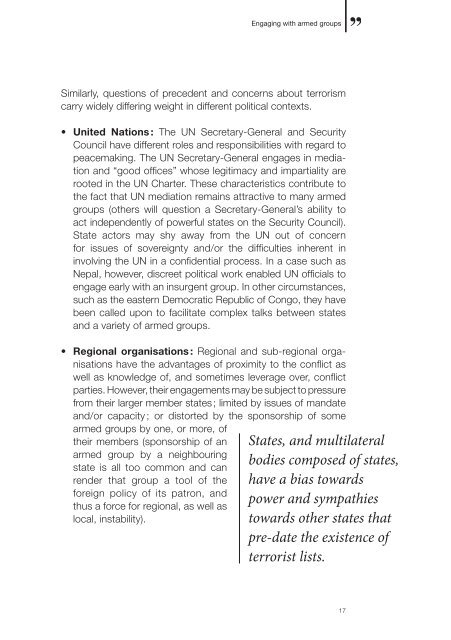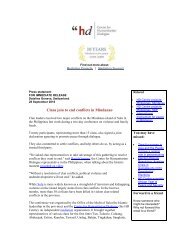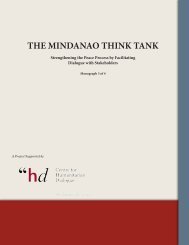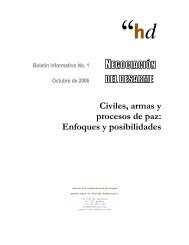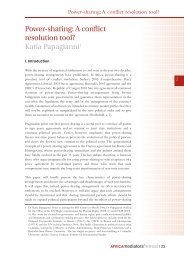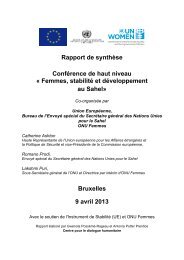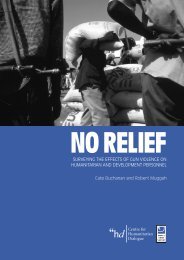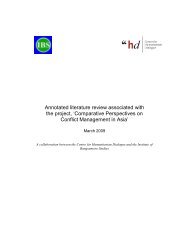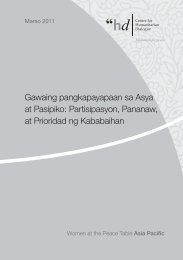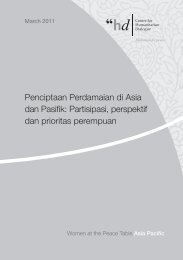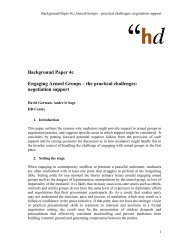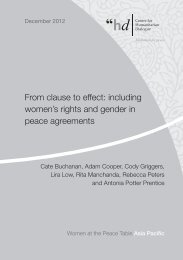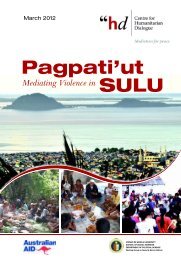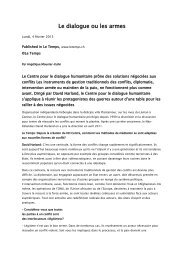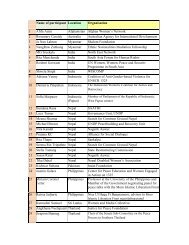Engaging with armed groups - Centre for Humanitarian Dialogue
Engaging with armed groups - Centre for Humanitarian Dialogue
Engaging with armed groups - Centre for Humanitarian Dialogue
- No tags were found...
Create successful ePaper yourself
Turn your PDF publications into a flip-book with our unique Google optimized e-Paper software.
<strong>Engaging</strong> <strong>with</strong> <strong>armed</strong> <strong>groups</strong>Similarly, questions of precedent and concerns about terrorismcarry widely differing weight in different political contexts.• United Nations : The UN Secretary-General and SecurityCouncil have different roles and responsibilities <strong>with</strong> regard topeacemaking. The UN Secretary-General engages in mediationand “good offices” whose legitimacy and impartiality arerooted in the UN Charter. These characteristics contribute tothe fact that UN mediation remains attractive to many <strong>armed</strong><strong>groups</strong> (others will question a Secretary-General’s ability toact independently of powerful states on the Security Council).State actors may shy away from the UN out of concern<strong>for</strong> issues of sovereignty and/or the difficulties inherent ininvolving the UN in a confidential process. In a case such asNepal, however, discreet political work enabled UN officials toengage early <strong>with</strong> an insurgent group. In other circumstances,such as the eastern Democratic Republic of Congo, they havebeen called upon to facilitate complex talks between statesand a variety of <strong>armed</strong> <strong>groups</strong>.• Regional organisations : Regional and sub-regional organisationshave the advantages of proximity to the conflict aswell as knowledge of, and sometimes leverage over, conflictparties. However, their engagements may be subject to pressurefrom their larger member states ; limited by issues of mandateand/or capacity ; or distorted by the sponsorship of some<strong>armed</strong> <strong>groups</strong> by one, or more, oftheir members (sponsorship of an<strong>armed</strong> group by a neighbouringstate is all too common and canrender that group a tool of the<strong>for</strong>eign policy of its patron, andthus a <strong>for</strong>ce <strong>for</strong> regional, as well aslocal, instability).States, and multilateralbodies composed of states,have a bias towardspower and sympathiestowards other states thatpre-date the existence ofterrorist lists.17


